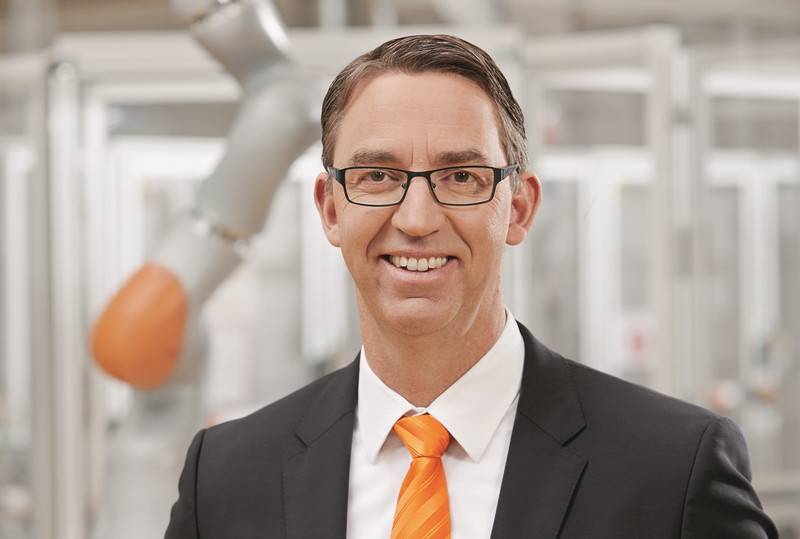You are the CEO of the world’s leading suppliers of robotics as well as plant and systems engineering. In your view, what are the key aspects in order to enable digital supply chains?
In my opinion, the key to enabling digital supply chains is supporting small and medium-sized enterprises (SMEs). In order to execute machine communication and reap the benefits of automated data exchange, SMEs need to have an easy way to connect digitally to suppliers and customers. They are sources of productivity and innovation and therefore of economic growth and job creation.
I believe that driving the digital agenda at SMEs continues the approach of prior B20 taskforces that focused on such companies as improving their access to global value chains or finding innovative ways to boost their development.
In order to enable small and medium-sized companies to face the challenges of digitalization, we need to ensure sufficient training and education as well as a sufficient digital infrastructure – for smaller enterprises as well as for large corporations.
Your headquarter is located in the historic town of Fugger – Augsburg. What motivated you to get engaged in B20 Germany?
One often underestimates the modernity and the ability to transition of the region – also partly due to its historic heritage. But this region perfectly combines tradition and innovation, so does KUKA. And we ultimately depend on the transformation effort of people and employees here.
I am convinced that we can be part of shaping the digital future and driving digitalization globally. At B20 Germany 2017 the B20 community will focus on that topic for the first time – I agree with our B20 partners that it is high time for the international business community to cooperate with the G20 to develop solutions to the challenges of a digital world economy.
What are your expectations for the B20 Taskforce Digitalization?
The robot is a central link between IT and production as well as between humans and technology. Automation is therefore a key element of Industrie 4.0. Today, KUKA is already implementing the vision of creating intelligent automation solutions for the future and the smart factory.
With further developments in the area of Industrie 4.0 we are experiencing a structural change of production processes through rising automation and robot penetration. In the long run, the use of robotics in production will balance global wage levels and lead to new economic chances and powers. Hence, we have to responsively approach this issue on a global scale.
A stable regulative environment as well as sufficient education and infrastructure are needed to face these challenges. Therefore, our expectations for the B20 taskforce is to address the challenges of digitalization and automation in dialogue among policymakers, civil society and business on an international level.
A look into the future: What steps need to be taken now by the G20?
At the summit in China, G20 identified the new industrial revolution, meaning Industrie 4.0, as a key element of a joint growth strategy. G20 recognized that innovation is a significant driver for growth creating job opportunities as well as raising productivity. Identified issues included the widening digital gap, which should be closed by improving digital infrastructure. I agree with those findings of the G20 summit and believe that next steps should be taken now by the G20 community. I welcome the action plan to support investments in science, technology and innovation – especially in SMEs.
The automation trend is a disruptive one and has the potential to cause either strong enthusiasm but also skepticism. It is our task to responsibly address such issues in order to explain transparently the status quo of the technological development and which road it will take.
In a nutshell: Now, the plans created in China need to be taken further into specific political actions.

